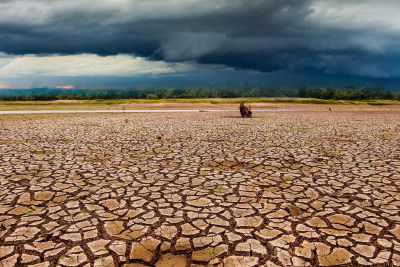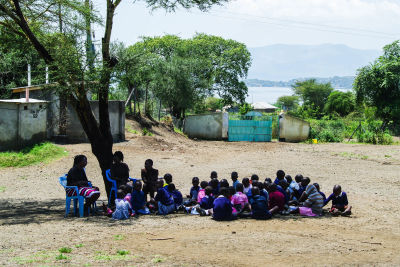Climate and Education
Building resilience
Every year, the education of 40 million children is disrupted by climate extremes.
(UNICEF, 2021). We help government and development partners respond, focusing on two interlinked areas: education system resilience and climate risk reduction.
Understanding and responding to climate impacts on education
A changing climate is changing education.
Classrooms are flooding, roads to school becoming impassable, and in many regions heat is making it difficult for students to learn. We connect geospatial data, climate analysis and education research to understand how environmental change affects learning and access.

Our approach
Every year, the education of 40 million children is disrupted by climate extremes (UNICEF, 2021). We help government and development partners respond, focusing on two interlinked areas:
Education system resilience
Adapting schools and systems to slow-onset changes such as rising temperatures and prolonged drought. We help ministries plan and invest in climate-smart classrooms, which are better ventilated, better sited and designed for long-term sustainability.
Climate risk reduction
Reducing exposure to fast-onset hazards such as floods and storms. Through spatial modelling, risk mapping and early warning frameworks, we support governments and humanitarian partners to act before climate shocks disrupt education.

Our framework and tools

Risk = hazard x exposure x vulnerability
This framework underpins all of Fab's climate analysis. By combining hazard (e.g. floods, heat), exposure (number of people affected), and vulnerability (infrastructure, socioeconomic data), we identify where climate threatens learning the most - and what to do about it.

Our AI and data-driven approach
We combine geospatial data, satellite flood mapping, temperature records and rainfall data with insights from headteachers, pupils and local officials. This mixed method reveals where schools are at risk and how these risks are experienced.
Three ways schooling is disrupted
How school is disrupted
Education system resilience.
Climate risk reduction.
Our Projects
Our climate & education projects
More projects

Sierra Leone flood risk index
Fab AI worked with the Government of Sierra Leone to develop the country's first School Flood Risk Index, a data-driven tool that identifies and prioritises schools most vulnerable to flooding.

Climate resilient infrastructure for basic services
Fab AI is contributing to the climate resilient infrastructure for basic services (CRIBS) programme, a UK funded initiative that strengthens the resilience of school and primary healthcare facilities in Nigeria.
Our vision
As climate pressures intensify and resources tighten, impact now depends on smarter choices. Fab AI's work is about precision, using data and partnership to direct action where it protects the most learners for the longest amount of time.
Work with us
We collaborate with governments, donors and local partners to translate evidence into real solutions.
Contact
Ian Sullivan, Climate Lead